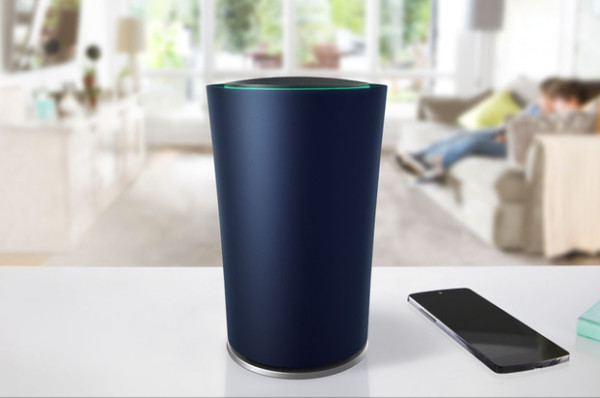 In a recent post on the Google Blog, Product Manager Trond Wuellner announced the company’s entry into the Wi-Fi router market with the new product called OnHub.
In a recent post on the Google Blog, Product Manager Trond Wuellner announced the company’s entry into the Wi-Fi router market with the new product called OnHub.
According to the post, OnHub supports the ZigBee connected-home protocol, also known as IEEE 802.15.4, and the Weave programming language developed by Google’s Nest Labs for Internet of Things applications. The OnHub also supports Bluetooth 4.0, including Bluetooth Smart Ready.
It was also revealed that the OnHub is outfitted with a Trusted Platform Module—a component more typically found on computers marketed to the enterprise. Finally, the OnHub also has a speaker with a 3-amp onboard amplifier and a dimmable LED light ring, but Google hasn’t revealed much about what these components do.
Typically, the OnHub is a dual-band router capable of operating independent networks on the 2.4- and 5GHz networks, supporting up to the 802.11ac Wi-Fi protocol. The spec sheet which was published recently indicates that the router will be capable of sending and receiving three spatial streams (3×3), supported by six antennas for each frequency band (that’s 12 in all), contained inside a cylindrical enclosure. A thirteenth antenna is used to evaluate network congestion.
“During setup,” Wuellner writes in his blog post, “OnHub searches the airwaves and selects the best channel for the fastest connection. A unique antenna design and smart software keep working in the background, automatically adjusting OnHub to avoid interference and keep your network at peak performance.” Wuellner says the OnHub is designed to be attractive enough to set up out in the open, which is one reason why the antennas are inside the enclosure. But one design choice that could leave home-networking enthusiasts frowning is the decision to provide just one, 1-gigabit LAN port and one USB 3.0 port.
Router manufacturers have made great strides when it comes to building faster and more powerful routers, but they’re still struggling to make these essential devices easy to install and maintain. We won’t know how much progress Google—and its manufacturing partner TP-Link—has made on that front until we can lay our hands on a unit for testing (Google says it will announce a second partner, Asus, later this year).
It will also be interesting to see how the rest of the router industry reacts to the OnHub: High-end routers routinely sell for more than $300 these days, but Google has priced the OneHub at just $200. Interested buyers can pre-order the router now, with retail availability in the US and Canada in the coming weeks.





